AirPods have become wildly popular since their release in 2016. These sleek, wireless earbuds from Apple make it incredibly convenient to listen to music, podcasts, or take phone calls on the go. But as more and more people pop AirPods into their ears for hours each day, some worry if this could be bad for your brain.
After all, AirPods sit right inside your ear canal, very close to your brain. And they emit electromagnetic radiation, similar to other wireless devices like cell phones and Bluetooth headsets. With AirPods practically microwaving your brain all day, are they silently causing damage or even brain cancer?
To find out, let’s look at what the scientific evidence says about the health effects of AirPods and wireless earbuds. The short answer is that AirPods are very unlikely to harm your brain or health if used responsibly. But there are some potential risks to be aware of.
How AirPods Work?
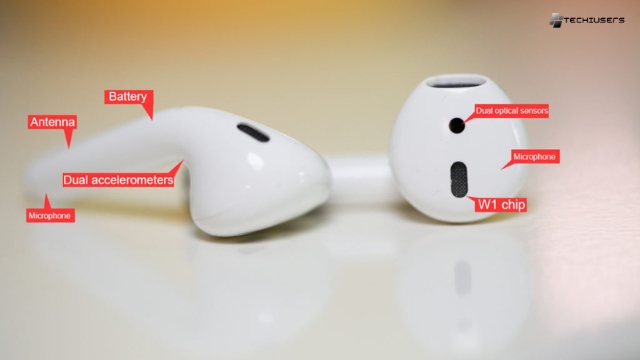
First, it helps to understand a bit about how AirPods actually function. AirPods connect to your phone or other devices using Bluetooth, a wireless technology found in many consumer gadgets these days.
Bluetooth allows AirPods to communicate with your phone by sending data back and forth using radio waves, a type of electromagnetic radiation (EMF). This is a form of non-ionizing radiation, which is low-energy and generally considered harmless to humans in the doses we typically encounter.
When you use AirPods, they are constantly emitting a small amount of this EMF radiation, as long as they are turned on and connected. The radiation passes through your ear and head as the AirPods communicate with your phone.
Some people worry that this radiation exposure, especially over long periods of wearing AirPods frequently, could damage brain cells or increase cancer risk. After all, your brain is sensitive and AirPods sit right inside your ears.
Are AirPods Bad For Your Brain?

There is currently no scientific evidence that AirPods or other Bluetooth earbuds cause harm to your brain.
While AirPods do emit low levels of non-ionizing electromagnetic radiation, the amount is well below established safety limits and is not known to pose health risks.
If you are still concerned, experts recommend limiting your usage time, taking breaks, and keeping the volume at a reasonable level to protect your hearing.
Do AirPods Emit Dangerous Levels of Radiation?
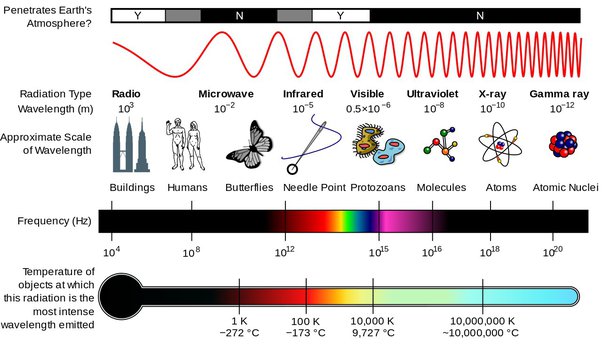
The amount of radiation generated by AirPods is actually very low. Bluetooth devices like AirPods emit far less radiation than cell phones themselves.
AirPods meet national and international safety limits for radiofrequency radiation exposure.
In the U.S., the FCC requires wireless devices to have a Specific Absorption Rate (SAR) below 1.6 watts per kilogram. AirPods come in at a tiny fraction of this limit, less than 10%.
While some EMF is emitted from AirPods into your ear canal, the amount is minimal compared to holding a cell phone up to your head, for example. You also get more radiation exposure from things like WiFi routers in your home or office than from AirPods.
So based on the best available scientific evidence, AirPods do not produce enough radiation to be immediately dangerous to your brain or your health. Government regulations and safety standards are designed to keep radiation from wireless devices at very low levels not known to cause harm.
Lack of Long-Term Research on AirPods
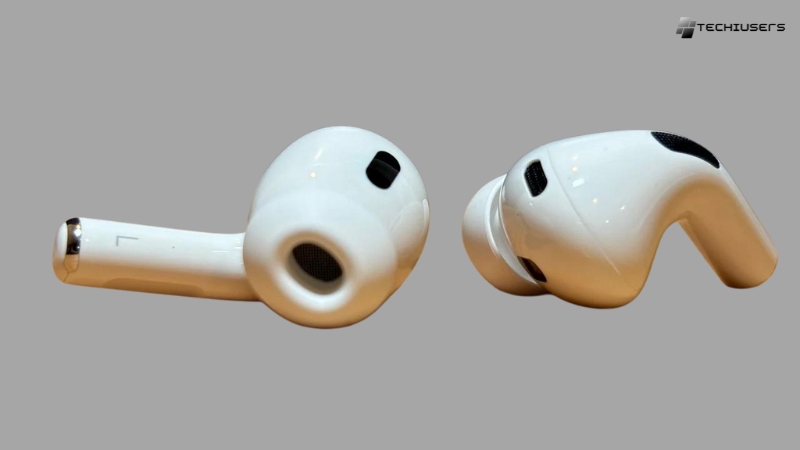
That said, AirPods are still a relatively new technology. While they meet current safety standards, there isn’t much long-term research on the effects of wearing wireless earbuds for many hours a day, over many years.
Some scientists argue that the current regulatory limits may not be strict enough. Over 250 researchers have signed a petition calling for stronger safety guidelines and more research on the long-term impacts of wireless radiation.
There are some signs that long-term exposure to even low levels of EMF could have biological effects on the human body.
However, so far major health agencies have not found clear evidence that radiation from consumer devices like Bluetooth headphones causes damage.
More research is still needed to study the effects of chronic, long-term use of AirPods and similar devices. For now, experts say there is not enough data to definitively rule out the possibility of subtle health impacts that could emerge over time.
But based on the best science available today, AirPods are generally considered safe.
Are Airpods Bad For Your Ears?
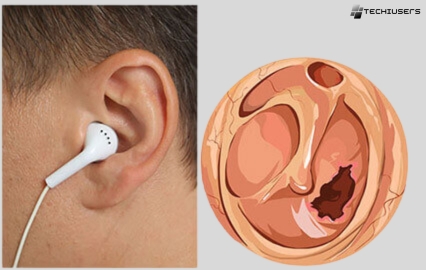
AirPods and other wireless earbuds are not inherently bad for your ears, but using them improperly can potentially cause harm. Listening at high volumes for extended periods may damage the delicate hair cells in your inner ear, leading to hearing loss over time.
This risk isn’t unique to AirPods; it applies to any headphones or earbuds used excessively or at unsafe volumes.
To protect your hearing, experts recommend keeping the volume at a reasonable level (below 60% of maximum), taking regular breaks, and limiting your daily listening time.
For more information on whether AirPods are bad for your ears and how to use them safely, check out this detailed article.
Other Ear Health Risks From AirPods
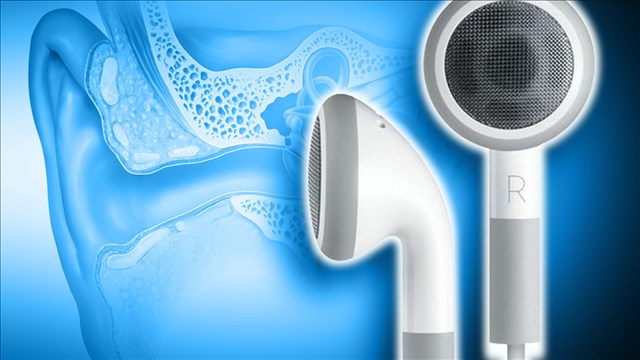
Aside from radiation, there are a few other potential health issues to watch out for with AirPods and wireless earbuds:
- Hearing damage from listening to loud music. AirPods can reach volumes up to 102 decibels. Frequent exposure to sounds above 85 decibels can contribute to hearing loss over time. Experts recommend taking listening breaks and keeping volume at 60% or lower.
- Ear wax buildup. Wearing AirPods for long periods can cause ear wax to become impacted in your ear canal. If you notice any pain, fullness, or muffled hearing, see a doctor to check for a blockage.
- Ear infections. AirPods can potentially contribute to bacterial growth in the ears, especially if they aren’t cleaned regularly. Moisture from sweat can also get trapped in your ear. Let your ears breathe periodically and clean your AirPods often.
FAQ’s:
Do AirPods cause Cancer?
There is no scientific evidence that AirPods or other Bluetooth headphones cause cancer. The radiation emitted by these devices is non-ionizing and very low level. Health agencies like the FDA and WHO have not found a clear cancer link.
Are AirPods Safer than other Wireless Headphones?
All wireless earbuds, including AirPods, work similarly and emit roughly the same amount of electromagnetic radiation. AirPods are not inherently safer or more dangerous than other Bluetooth headphones. All of these devices are regulated and deemed safe under current guidelines.
Can I wear AirPods all day?
It’s best not to wear AirPods or any in-ear headphones all day long. Over time, this can increase ear wax buildup and the risk of ear infections. It’s also important to keep listening volume at a moderate level to avoid hearing damage. Take breaks and let your ears breathe every few hours.
Should I worry about AirPods radiation?
While it’s good to be aware of the EMF radiation from wireless devices, the levels emitted by AirPods are very low and unlikely to cause harm. AirPods meet strict government safety limits on radiation. If you’re concerned, using wired headphones more often is always an option.
Conclusion
Based on the current scientific evidence, AirPods are unlikely to cause significant health issues for most people when used properly.
While they do emit radiation, the levels are far below government safety limits and are not thought to pose a serious risk to your brain.
Some scientists argue for more research into the long-term effects of wireless earbuds. But major health organizations have not found a clear link between AirPods and conditions like cancer or brain tumors.
For now, AirPods are generally considered safe. As with any device, moderation and responsible usage is key.
To protect your ears, keep your listening volume at a reasonable level and take breaks from wearing AirPods for hours on end. Clean your earbuds regularly to avoid infections.
If you’re still concerned about radiation from AirPods, consider using wired headphones instead, especially for long listening sessions.
But overall, you can rock your AirPods without worrying that you’re microwaving your brain. The science so far says you’re in the clear.

